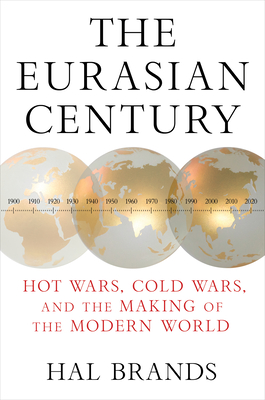
Brands, Hal
We often think of the modern era as the age of American power. In reality, we're living in a long, violent Eurasian century. That giant, resource-rich landmass possesses the bulk of the global population, industrial might, and potential military power; it touches all four of the great oceans. Eurasia is a strategic prize without equal--which is why the world has been roiled, reshaped, and nearly destroyed by clashes over the supercontinent.
Since the early twentieth century, autocratic powers--from Germany under Kaiser Wilhelm II to the Soviet Union--have aspired for dominance by seizing commanding positions in the world's strategic heartland. Offshore sea powers, namely the United Kingdom and America, have sought to make the world safe for democracy by keeping Eurasia in balance. America's rivalries with China, Russia, and Iran are the next round in this geopolitical game. If this new authoritarian axis succeeds in enacting a radically revised international order, America and other democracies will be vulnerable and insecure.
Hal Brands, a renowned expert on global affairs, argues that a better understanding of Eurasia's strategic geography can illuminate the contours of rivalry and conflict in today's world. The Eurasian Century explains how revolutions in technology and warfare, and the rise of toxic ideologies of conquest, made Eurasia the center of twentieth-century geopolitics--with pressing implications for the struggles that will define the twenty-first.
member goods
listens & views

STAR WARS: SOUND OF HOLLYWOOD
by MAUCERI / HOLLYWOOD BOWL ORCHESTRA
COMPACT DISCout of stock
$12.99






